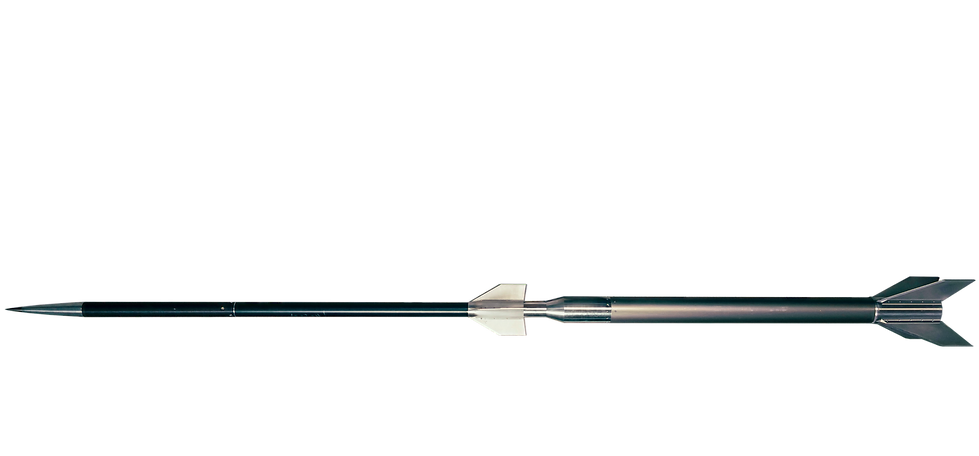
The Vehicle
The rocket is a 2 stage, solid fuel, assembled aluminum body. It stands approximately 12 feet long, weighing 50 lbs at launch. During flight, it will reach Mach 5.5 on ascent, reaching a maximum altitude of 120 kilometers. It carries an electronic payload with a GPS-based telemetry system for airborne location tracking to collect data for flight trajectory analysis and motor characterization. We will also collect temperature data inside the payload bay for thermal analysis and capture inflight video. The vehicle is designed with Anvil to be highly reusable, with a marginal relaunch costs.

Rocket Stages
Booster Stage


Sustainer Stage
Learn More about our rocket design software platform, Anvil. This proprietary software is currently available to all Embry Riddle students. Please contact us for software requests.
Quick Rocket Stats
2 Stage
Solid Fuel Rocket
120 Km
Max Altitude
Mach 5.5
Max Speed
12 Feet
Stacked Vehicle Length
13 mins
Total Flight Time
50 lbs
Fueled Rocket Weight
Schedule
April 2023
August 2022
December 2021
Fall 2021
August 2021
December 2020
August 2020
Spring/Fall 2019
Fall 2018
Succesful vehicle flight, including stage seperation and high-altitude ignition.
Launched rocket, achieved Mach 2.5 upon ascent. Flight terminated early due to compromised structure.
Launch attempt, scrubbed due to vehicle interstage rigidity issues.
Final assembly, fueling and electronics testing was performed in preparations for launch.
FAA launch approval is received, preparations for launch at Friends of Amateur Rocketry begin.
Maiden sustainer test flight performed at Friends of Amateur Rocketry in Mojave, CA
FAA Class II launch wavier filed
Rocket design work commences
Project Conception
For the continued support from the Embry-Riddle College of Engineering, Undergraduate Research Institute, Aerojet Rocketdyne, and Blue Origin. A special thanks to our advisor and Department Chair of Mechanical Engineering, Professor Andy Gerrick.

Want to learn more?
Contact Us!




